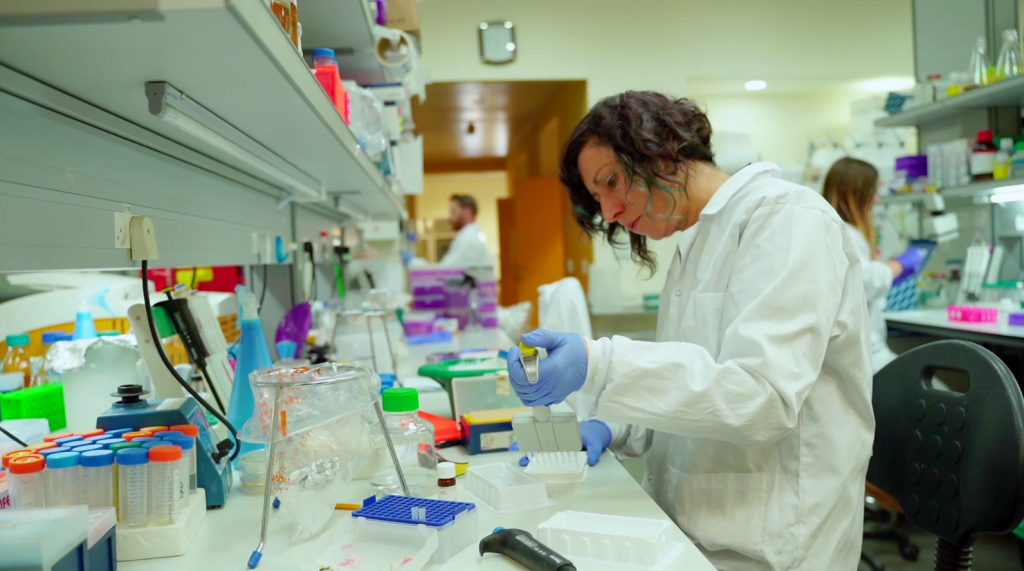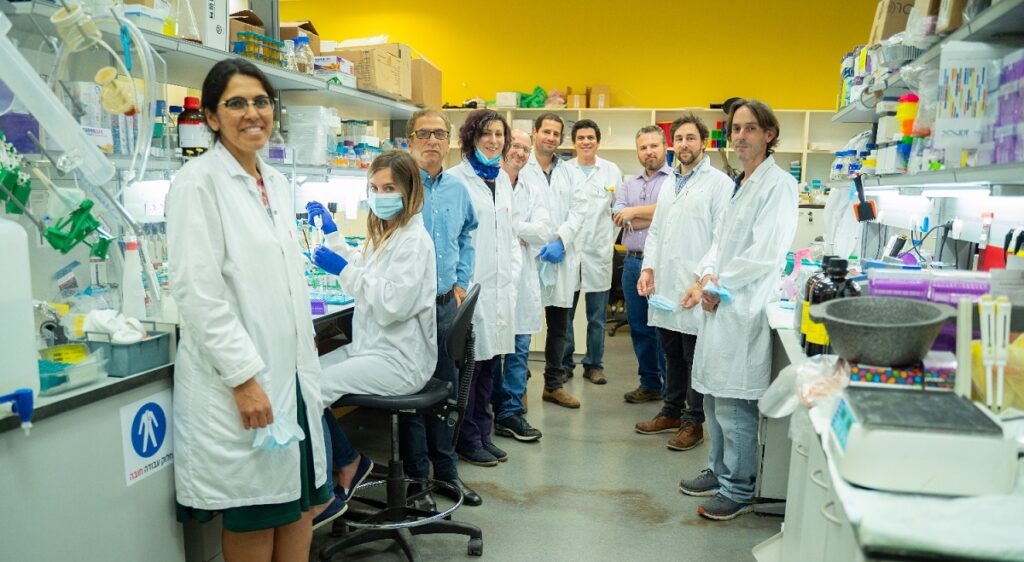MigVax, the affiliate company established by Israeli scientists at the Migal Galilee Research Institute to develop a vaccine for the coronavirus, announced that its oral COVID-19 vaccine performed well on rodents in preclinical trials.
The company said that the promising results demonstrated the effectiveness of the vaccine as a booster for previously vaccinated persons and indicated that, with funding, it is on track to go to market in as early as nine months to a year.
Professor Itamar Shalit, an infectious disease specialist and consultant to MigVax tells NoCamels the company is preparing to begin clinical trials on humans, which he believes they will be starting “in the next few months.”

“We gave it to mice and [the results] show it works well in mice. We think it will have the same three-pronged response in humans,” he explains.
The company’s novel oral subunit vaccine, dubbed MigVax-101, utilizes a chimeric protein that presents viral proteins to the immune system to generate three kinds of simultaneous immunological responses. These responses are mucosal, blood-based, and cell-mediated immunity.
In the preclinical trial, the company administered the vaccine as a booster to rodents who already had a double injection of the coronavirus spike (S1) protein. The results showed that using MigVax in boost format elicited markedly higher neutralizing antibodies than rats receiving an oral placebo booster. In addition, it triggered more effective neutralizing antibodies than a third S1 booster injection, a statement from Migvax said.
MigVax’s oral vaccine
When the COVID-19 virus began to spread around the world, Israeli scientists in the northern Israeli town of Kiryat Shmona realized that a vaccine they had developed for a deadly virus affecting poultry could be adapted for human use against the novel coronavirus and severe acute respiratory syndrome coronavirus 2 (SARS-CoV-2).
“It was based on a successful chicken vaccine IBV (infectious bronchitis virus ) or chicken coronavirus. At that time, we thought that it should be a fairly quick conversion to human testing. That didn’t turn out to be the case due to unexpected manufacturing issues with one of the proteins. As the famous line goes: man plans and God laughs. However, the company has overcome these challenges and is now ready for human clinical testing for the booster vaccine,” says Morris Laster, a MigVax company consultant and medical venture partner at OurCrowd, the Jerusalem-based active crowdfunding platform that invested in MigVax back in April 2020.

MigVax focused on making the MigVax-101 booster an oral vaccine because while this vaccine offers the same level of antibody neutralization as an injection, distributing it orally — as drops in the tongue — provides significant advantages over the current injectable vaccines.
One important “bonus,” Prof. Shalit explains, is that the MigVax vaccine triggers mucosal immunity of IgA, an antibody blood protein made in the body to help fight off sickness, at the point of entry of the virus. In the case of COVID-19, the virus is spread through the nose and mouth, so receiving an oral vaccine would immediately elicit a response at the exact location that the virus first enters the body.
Sign up for our free weekly newsletter
Subscribe“We have already proven this in animals,” Prof. Shalit adds.
SEE ALSO: OurCrowd Hosts 1st Pandemic Innovation Conference Focused On Investing In ‘New Normal’
The MigVax vaccine also addresses the numerous coronavirus variants that have come out of the ongoing pandemic, Dr. Laster tells NoCamels. According to Dr. Laster, the Migvax vaccine uses an RBD protein that is easily adjustable to the most current variants, and it also utilizes the nucleocapsid protein, which does not change, and may also help confer long term immunity.
“Coronavirus, unfortunately, is not going away, and is developing mutations. The more mutations accumulate, the further it becomes from the original strain and as such, there is a great probability that we will need to get vaccine boosters,” he says.

There are other significant advantages of the oral vaccine, including the idea that it eliminates the need for administration by healthcare professionals.
“Logistically, an orally administered vaccine does not require healthcare professionals for administration, does not require a deep freeze and may have more acceptability by people who may be reticent to receive injections of genetic or viral material,” says Dr. Laster.
This is especially favorable “when you think about an entire world that needs to be repeatedly vaccinated, and when health professionals are limited,” Prof. Shalit agrees.
“Fifteen months into the pandemic, we now see that the struggle to keep Covid under control is nearly as challenging as getting it under control to begin with. Oral boosters such as our MigVax-101 will be key enablers that will help health organizations the world over transition from ‘panic mode’ to routine, due to their ability to reduce the cost and expand the reach of ongoing vaccination programs,” he said.
Related posts

Israeli Medical Technologies That Could Change The World

Harnessing Our Own Bodies For Side Effect-Free Weight Loss

Missing Protein Could Unlock Treatment For Aggressive Lung Cancer




Facebook comments